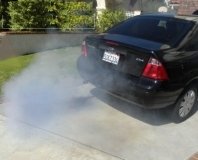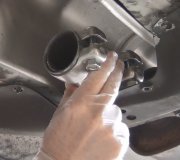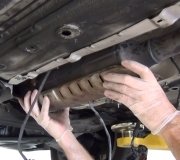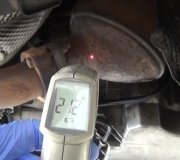Blue smoke after setting and on initial cold start is 99% of the time, bad valve stem seals. The other 1% it is a plugged up return passages in the head not allowing the oil to drain back into the pan. Toyota had a problem with some engines forming oil sludge in them which caused oil flow problems. In your case I would suspect it is a combination of both.
As for your list of suspects.
Stem seals would cause blue smoke at initial start because the oil can leak past the valve stem seal, run down the stem and pools on the valve or piston. When it burns off you get blue smoke. But normally only on initial start because they are not leaking real bad.
Valve cover gaskets - normally this will lead to oil leaking outside the engine and or into the spark plug wells. No blue smoke because the oil does not burn, although it can stink like crazy as the engine gets hot and it could drip on the hot exhaust and cause smoke from under the hood, but not out the exhaust.
Piston rings - These being stuck, carbon blocked, or broken will show up as lost power and almost constant blue smoke that gets worse as the engine heats up.
My suggestion is to have the valve stem seals done, have the timing components changed as well as pulling the oil pan off and cleaning the lower end of any sludge build up. Not going to be real cheap, but it gives you a better starting point. Then use a synthetic oil for your changes.
Thursday, April 13th, 2017 AT 6:12 AM



